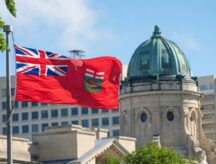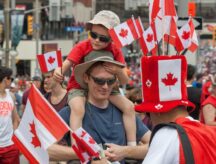Spousal sponsorship in Canada: How IRCC checks if a relationship is genuine
Immigration Refugees and Citizenship Canada (IRCC) cites family reunification as one of the pillars of Canadian immigration.
When you apply to bring a spouse or partner to Canada under family class sponsorship, IRCC must be satisfied that the relationship is genuine.
IRCC makes these assessments because sometimes a foreign national may attempt to pursue a non-genuine relationship with a Canadian citizen or permanent resident to gain Canadian permanent resident status while the sponsor believes they are in a genuine and committed marriage or partnership. This can be both emotionally and financially difficult for a sponsor because they must sign an undertaking to financially support their partner for three years from the day they receive permanent resident status regardless of if the relationship breaks down.
Sponsor your family for Canadian immigration
Canadians or permanent residents may also attempt to enter into a business-like arrangement and fake a relationship with a foreign national in exchange for a fee.
To prove a real relationship exists, several documents must be included in an application to sponsor a spouse or partner. If an immigration officer needs more proof that a relationship is genuine, they can ask the couple to visit an IRCC office for an interview. They may interview both the sponsor and the applicant, separately.
If an officer is not satisfied that a genuine relationship exists, the foreign national will not be eligible for sponsorship.
How to prove a relationship is genuine
The department asks all couples, including same-sex couples, to provide documentation that proves the relationship is genuine and types of documentation can vary depending on if the couple is married or common-law in Canada.
Spouses
- A married couple needs several forms of official documentation including:
- a completed Relationship Information and Sponsorship Evaluation questionnaire (IMM 5532) (included in the application package)
- a marriage certificate
- proof of registration of marriage with a government (local, provincial, state or country) authority
- proof of divorce if either the applicant or spouse was previously married
- if the principal applicant and sponsor have children in common, long-form birth certificates or adoption records listing the names of both parents
- wedding invitations and photos
Same-sex couples whose marriage is not legally recognized by the foreign national’s country must apply as a common-law relationship. In instances when the couple has been unable to live together due to an inability to get long-stay visas, they may apply as a conjugal partner.
Common-law
In Canada, a common-law relationship is defined as an unmarried couple that has been living together in a conjugal partnership for at least one year. They must submit the same documentation as married couples (minus wedding photos and invitations) as well as:
- documentary evidence of financial support between the principal applicant and sponsor, and/or shared expenses; and
- other proof that the relationship is recognized by friends and/or family (e.g. letters from friends/family, social medical information showing a public relationship)
Further, for both married and common-law relationships a sponsor and principal applicant are expected to provide items from at least two of the following sets of documents.
- proof of joint ownership of residential property.
- rental agreement showing both the sponsor and principal applicant as occupants of a rental property
- proof of joint utility accounts (e.g. electricity, gas, telephone, internet), joint credit card accounts, or joint bank accounts
- vehicle insurance showing that both the principal applicant and sponsor have been declared to the insurance company as residents of the insured’s address
- copies of government issued documents for the principal applicant and sponsor showing the same address (e.g.: driver’s licenses)
- other documents issued to the principal applicant and sponsor showing the same address, whether the accounts are held jointly or not (e.g. cell phone bills, pay stubs, tax forms, bank or credit card statements, insurance policies)
If they cannot provide at least two of these documents, couples will need to provide a detailed written explanation.
Proving cohabitation
Couples can prove they have been living together as conjugal partners in Canada by submitting:
- joint bank accounts or credit cards
- joint ownership of residential property
- joint residential leases
- joint rental receipts
- joint utilities accounts (electricity, gas, telephone)
- joint management of household expenditures
- evidence of joint purchases, especially for household items
- correspondence addressed to either or both parties at the same address
- important documents of both parties showing the same address, for example, identification documents, driver’s licenses, insurance policies
- shared responsibility for household management, household chores
- record of telephone calls
If the couple is not living together in Canada, they need to show evidence they lived together previously for at least one year by presenting:
- Evidence they have been in contact via letters, text messages that have been printed, email, social media conversations, or other documents showing they have been in contact. This should be a maximum of 10 pages.
- Evidence that the Canadian citizen or permanent resident has visited their partner via flight tickets or boarding passes, passport photocopies with stamps. If visits did not take place, an explanation needs to be included by the sponsored individual in the IMM 5532 questionnaire (Part C, question 4).
- Do you need Canadian immigration assistance? Contact the Contact Cohen Immigration Law firm by completing our form
- Send us your feedback or your non-legal assistance questions by emailing us at media@canadavisa.com







